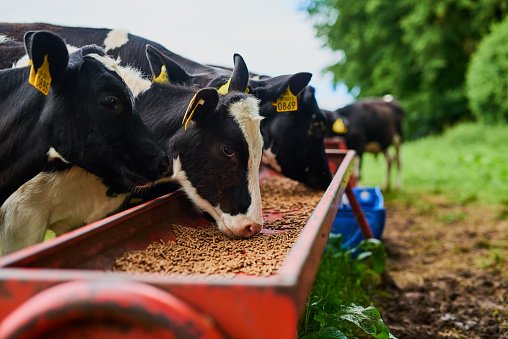Introduction.
Starting an animal feed business in Nigeria is an exciting opportunity, and it’s one that can be both profitable and impactful. If you’re thinking about getting into this industry, you’re definitely on the right track.
Animal farming is big business in Nigeria—cattle, poultry, goats, pigs, and other livestock are important parts of the food chain and local economy. That means there’s always a demand for high-quality animal feed.
But where do you start? How can you make sure you’re building a business that thrives in this space?
This article will guide you through the steps, tips, and things you need to know to set up a successful animal feed business in Nigeria.
I’ll break everything down, from understanding the market, sourcing ingredients, setting up your production process, and navigating any challenges you might face.
So, let’s dive right in and see how you can turn this idea into a booming business.
How Do I Start an Animal Feed Business In Nigeria?
1. Understanding the Market for Animal Feed in Nigeria
Before you jump into producing animal feed, it’s crucial to understand the market. Nigeria is one of the largest producers of livestock in Africa. Poultry farming is especially popular, with millions of chickens being raised daily.
The demand for poultry feed alone is huge! The same goes for cattle, goats, and even fish farming, which all require quality feed to grow and produce efficiently.
According to the Federal Ministry of Agriculture and Rural Development (FMARD), Nigeria’s agricultural sector is growing rapidly, and animal husbandry is a key part of that growth.
More people are getting into farming, and as a result, they need reliable sources of affordable and nutritious feed for their animals. This is where you come in.
The market for animal feed in Nigeria includes smallholder farmers, large commercial farms, and even private owners of backyard poultry or livestock.
It’s a broad audience, and it’s growing. So, you’re stepping into a business with plenty of potential.
2. Types of Animal Feed You Can Produce
There are several types of animal feed you can focus on, depending on the animals you want to serve. Here are some of the most common options:
- Poultry Feed: This is one of the most profitable segments. With the demand for chicken meat and eggs soaring in Nigeria, there’s always a need for poultry feed. You can produce feed for broilers (meat chickens), layers (egg-laying chickens), and even starter feeds for chicks.
- Cattle Feed: With the cattle population rising, especially in northern Nigeria, there’s a market for cattle feed. You can either focus on feed for dairy cattle or beef cattle.
- Fish Feed: Fish farming is becoming increasingly popular in Nigeria. If you choose to produce fish feed, you’ll be serving fish farmers who need specialized food for their tilapia, catfish, and other fish species.
- Goat & Sheep Feed: With the growing interest in goat farming, there’s also a steady demand for high-quality feed to raise healthy goats and sheep.
Once you’ve decided which type of feed you want to focus on, you can start sourcing the raw materials and setting up your production process.
3. Sourcing Raw Materials
The quality of your feed will depend heavily on the raw materials you use. Some common ingredients used in animal feed include:
- Maize (corn): This is a staple ingredient in animal feed, particularly for poultry.
- Soybean Meal: Rich in protein, this is commonly used in poultry and fish feed.
- Wheat Bran: A by-product of milling, wheat bran is often used in cattle and poultry feed.
- Fish Meal: Used in high-protein fish feed for species like tilapia.
- Rice Bran: This is another ingredient used in animal feed, especially in the poultry industry.
In Nigeria, many of these raw materials are locally available, but prices can fluctuate depending on the season and other factors. You’ll need to establish relationships with reliable suppliers to ensure you’re getting high-quality ingredients at competitive prices.
4. Setting Up Your Production Process
Once you’ve sorted out your raw materials, the next step is setting up your production facility. Depending on the size of your operation, this could range from a small-scale setup to a large factory.
Here’s a basic outline of the steps involved in animal feed production:
- Formulation: This is the process of creating recipes for the different types of feed you plan to produce. You’ll need to consider the nutritional requirements of each type of animal you’re feeding, including the balance of protein, carbohydrates, fats, and vitamins.
- Mixing: After you’ve formulated your feed, it’s time to mix the ingredients. This is done using specialized machinery like feed mixers to ensure that the nutrients are evenly distributed.
- Pelleting: Many animal feeds are made into pellets for easy consumption. Pelleting involves compressing the feed mixture into small, digestible pellets using a pellet mill.
- Packaging: Once your feed is ready, it needs to be packaged for sale. Packaging should be durable and safe to ensure the feed stays fresh and uncontaminated.
If you’re just starting out, you may not need a huge factory. You can begin with a small-scale production setup and gradually expand as your business grows.
5. Business Registration and Legal Requirements
Starting a business in Nigeria comes with certain legal requirements. For an animal feed business, you’ll need to register with the Corporate Affairs Commission (CAC) to get your business incorporated.
Additionally, you’ll need to obtain the necessary licenses and permits, especially from bodies like the National Agency for Food and Drug Administration and Control (NAFDAC) and the Nigerian Agricultural Quarantine Service (NAQS).
It’s also a good idea to look into securing insurance for your business and production facility. This can help protect you from unexpected losses due to accidents, theft, or natural disasters.
6. Marketing Your Animal Feed Business
Now that you’ve got everything in place, it’s time to get the word out. Marketing is key to attracting customers and building your brand. Here are a few ways to market your animal feed business:
- Word of Mouth: In many rural communities, word of mouth is one of the most powerful marketing tools. Talk to local farmers, set up relationships, and encourage them to spread the word about your feed.
- Online Presence: Even if your business is in a rural area, an online presence can help. You can set up a simple website or even use social media platforms like Facebook and Instagram to showcase your products and connect with potential customers.
- Trade Shows and Farmers’ Markets: Participating in agricultural events is another great way to promote your products to the farming community.
- Discounts & Samples: Offering free samples or discounts on bulk purchases can encourage farmers to try your feed. Once they see the quality and results, they’ll likely become repeat customers.
7. Challenges in the Animal Feed Business
Like any business, the animal feed industry comes with its challenges. Some common issues include:
- Fluctuating Raw Material Prices: The price of raw materials like maize, soybeans, and fishmeal can vary depending on the season and market conditions.
- Competition: The animal feed market in Nigeria can be quite competitive. Larger companies may dominate the space, but smaller businesses can still thrive by offering quality and personalized service.
- Logistics and Distribution: Getting your product to farmers, especially those in remote areas, can be challenging. You’ll need a reliable distribution network to ensure your feed reaches customers on time.
FAQs
1. How much capital do I need to start an animal feed business in Nigeria?
It depends on the size of the business you want to start. A small-scale operation could cost around ₦1 million to ₦2 million, while a larger setup could run into the tens of millions. Be sure to plan for equipment, raw materials, and operating expenses.
2. Can I produce feed on a small scale?
Yes! You can start small and gradually expand. Many successful animal feed businesses in Nigeria started with a simple production process and small machinery.
3. How do I get customers for my animal feed?
Word of mouth, online marketing, and attending agricultural trade events can help you attract customers. Offering discounts or samples can also encourage farmers to try your products.
Conclusion.
The animal feed business in Nigeria is growing, and there’s plenty of opportunity for newcomers.
So, if you’re thinking about getting into the animal feed business, ask yourself:
Are you ready to meet the growing demand and contribute to the thriving agricultural sector in Nigeria?
Let me know what you think!





GIPHY App Key not set. Please check settings